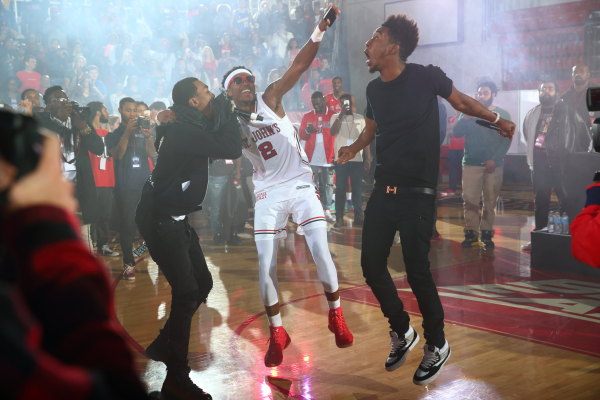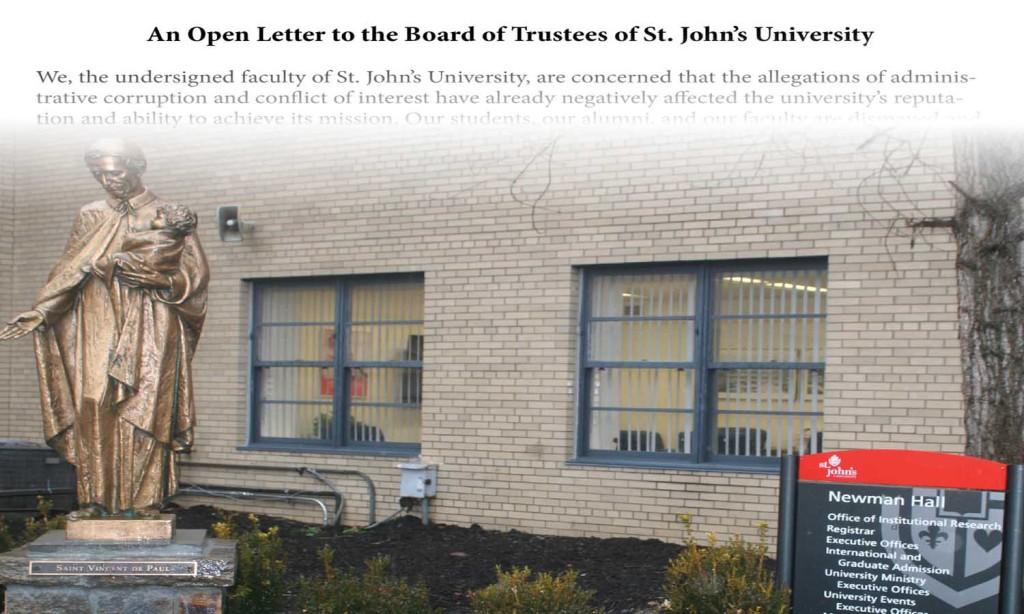Questions flooded the St. John’s campus on March 19. They were texted, tweeted and whispered across crowded lecture halls after students got word that a professor had passed the night before on school grounds.
These questions remained largely unanswered until a few of his students petitioned The Torch to write an article not just about the man that taught them
classes on Monday and Thursday mornings, but the man that changed their lives and shaped their careers.
Camerano died the night of March 18 before leaving the St. John’s University Campus. Ellen Borakove from the Office of [the] Chief Medical Examiner said the cause of death was heart disease and natural causes. According to public records, he was 77. Franklin Camerano was an Associate Professor under the Division of Social Sciences within the College of Professional Studies. He was the Director of the Health Services Administration program and the faculty moderator of the St. John’s American College of Healthcare
Executive’s chapter. He had been an employee at St. John’s for 16 years. In his professional life, Camerano has worked as a Chief Operating Officer for Booth Memorial Medical Center, Westchester Medical Center and Mount Vernon Hospital. He had a hospital career that spanned close to 40 years and was a fellow in the ACHE’s national chapter.
However, Prof. Camerano was much more than just a series of two letter abbreviations past his name- he was an advisor, a mentor and a confidant. For students like Amy Pruim, Camerano is the whole reason she is a health services major.
“I was a biology major and was thinking about changing,” Pruim said. “His class was the deal breaker and the
reason I changed my mind.”
Pruim described him as a “legend” within the health services administration major and said you couldn’t get through the program without taking one of his classes. She said he never taught with a book and just stood in front of the class and talked.
Students like junior Kayla Spence agree. “He was very knowledgeable which meant his lectures came from a lot of his past experiences. His classes weren’t so much lectures but discussions,” Spence said. “It was a very open relationship we all had with him, we could all easily talk to him.”
He even had breakfast with students in Marillac Café before class. Camerano was the only full-time health services administration professor at
St. John’s and, what some describe as, the “backbone” of the program. But again, he was much more than that.
For alumnus Katie Todd, Camerano was there for her outside of the classroom, like when she was looking for apartments in Brooklyn. He even cheered her on
during an intramural softball game one Sunday afternoon after accepted student’s day.
“At that moment, I realized it was a relationship that went so much further than just a professor,” Todd said in a phone interview from her Ditmas Park apartment, the safe neighborhood Camerano advised her to move to. His students were surprised he was not in class the morning of March 19 and
even more surprised to hear of his death. He had actually been at an ACHE panel event on campus the night of his death, hosting career professionals so students within the major could network.
His students will remember his early morning breakfasts at Marillac. They will remember the random St. John’s
baseball caps he wore everyday to class and they will remember his jokes. Most importantly, his students will remember the lessons they learned about healthcare administration and how to have as tenured of a career as he had.
Camerano’s students are having some trouble adjusting without him but are trying to remain optimistic.
“I really hope that maybe some positives can come out of such a negative experience,” Spence said. “It has definitely brought out a larger turnout to club events and meetings and that was really the legacy that Professor Camerano wanted to leave here.”
Through his actions as a professor and faculty member, his legacy and memory will surely live on.
“His last act on earth was doing what he loved,” said April Merenda, Assistant to the Dean and External Affairs.
And that was working for his students.










